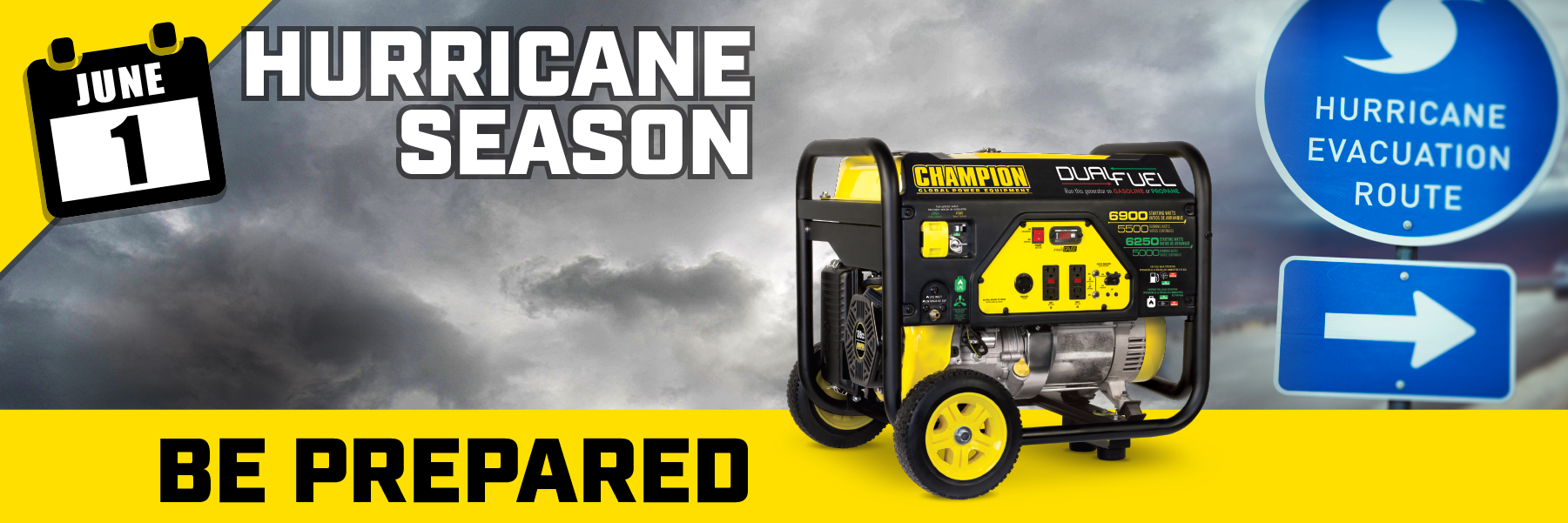Hurricane Season 101: What experienced people do to get ready

If you’ve ever been caught unprepared when a hurricane hit your area, there’s no doubt you’ll have all your ducks in a row the next time hurricane season comes around. We spoke to several people who survived Hurricane Hugo in South Carolina and Hurricane Andrew in Florida to get their recommendations on how to prepare for hurricane season. When we asked them to share their most important hurricane preparation advice, our survival experts came up with these words of wisdom.
- Gather supplies and prepare a safe area in your home. Make sure you have a first aid kit, medications, batteries, flashlights, and a battery-powered radio, as well as a three-day supply of water and non-perishable food for your family and your pets.
- Take advantage of technology. Purchase one or two portable phone chargers, and make sure they’re charged up. Download a smartphone app that will notify people of your location and whether or not you’re safe. The Red Cross has a free hurricane app you can download. Check redcross.org and this article for a list of great apps to get you through an emergency.
- Be prepared to evacuate. Even if you don’t live on the coast, you should still have a plan for evacuating, and make sure that plan includes your pets. Put important family documents in a binder so you can take them with you. Familiarize yourself with evacuation routes, make sure you keep your gas tank full and have your supplies ready to go.
- Prepare your home and your street. Reinforce garage doors, and board up your windows with ⅝-inch plywood or hurricane shutters. Bring in outside items if they can be picked up by high winds, and check the storm drains in your neighborhood to make sure they’re free from debris. If not, organize your neighbors to get together and clear away any debris that could clog drains and create drainage issues.
- If you own a portable generator, it’s smart to have plenty of extra propane or gasoline on hand to fuel it, as fuel will be in high demand during and after the hurricane. If your generator has been in storage, follow the instructions in your owner’s manual to make sure it’s ready to provide backup power when the power goes out. Here is a helpful video on how to remove and prep your generator from storage.
Readiness for a hurricane power outage should include a generator. During the hot summer months, going for days without air conditioning is not only miserable, it can be dangerous for you and your family, plus the high temperatures and humidity can damage your home’s interior. Depending on the type and size generator you own, you can have access to your lights, air conditioning, refrigerator, stove, and more, not to mention access to the weather and news.
There are two main types of generators for hurricanes: portable and home standby.
A portable generator is perfect if you only want to back up a few essentials. Portable generators come in different sizes, they run on either gasoline or propane, and they don’t need to be installed.
If you’re interested in powering more than just the essentials, or even your whole home, you may want to have a standby generator installed. Standbys never need refueling since they’re connected to your propane or natural gas system. Your home standby generator starts automatically when the power goes out and returns to standby when power is restored, ensuring safety and convenience for your family during a hurricane power outage.
Following the advice of hurricane survivors to prepare now is smart, plus knowing you have a safe source of power ready to go will provide peace of mind for you and your family during any season.